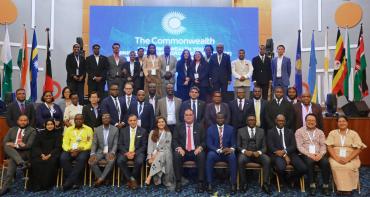At the annual Commonwealth Health Ministers Meeting in Geneva on Sunday, ministers discussed the need to prioritise women, youth, people with disabilities and vulnerable groups, in their ongoing push towards universal health coverage (UHC).

At the annual Commonwealth Health Ministers Meeting in Geneva on Sunday, ministers discussed the need to prioritise women, youth, people with disabilities and vulnerable groups, in their ongoing push towards universal health coverage (UHC).
With UHC, all individuals can receive the health services they need without suffering financial hardship. However, half of the world’s population lacks full coverage of essential health services, while almost 100 million are being pushed into extreme poverty due to health care costs.
Fiji’s Minister of Health, Ifereimi Waqainabete, chaired the meeting and said: “There’s a recognition that we can share what we do best in one country, with others. We are independent nations in the Commonwealth, but there is also interdependence.”
Commonwealth Secretary-General Patricia Scotland added: “Health is both an input to and a desirable outcome of sustainable development. Any delays in addressing the needs of the most marginalised on the journey to delivering the Sustainable Development Goals by 2030, results in much steeper challenges in the future.”
Ministers were especially concerned that 40 per cent of pregnant women were not receiving early antenatal care, while two-thirds of women experiencing gender-based violence were not accessing any services.
They highlighted the impact of mental health on entire communities, with more than one billion people living with mental health challenges and substance abuse disorders.
Meanwhile, one billion people live with a disability, including one in six with a discernible disability in developing countries.
Ministers explored ways to tackle these challenges, along with other key issues such as adolescent health and violence, sexual and reproductive health, and communicable diseases and climate change.
They discussed innovative ways to finance UHC, including through national health insurance systems.
Ministers also noted the importance of setting context-specific UHC goals, along with concrete actions, including:
- Strengthening the health workforce by increasing their numbers and ensuring they have the right competencies
- Recognising primary healthcare close to the community as a gateway to leaving no one behind
The meeting commended the work of the Secretariat, particularly noting the emphasis on practical toolkits, such as the price sharing database, to assist member countries.
The next health ministers meeting will be held in May 2020 and will be chaired by The Gambia.
Read the Ministerial Statement
Commonwealth statement at the World Health Assembly



